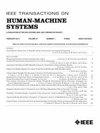Multidimensional Scaling Orienting Discriminative Co-Representation Learning
IF 4.4
3区 计算机科学
Q2 COMPUTER SCIENCE, ARTIFICIAL INTELLIGENCE
引用次数: 0
Abstract
Co-representation, which co-represents samples and features, has been widely used in various machine learning tasks, such as document clustering, gene expression analysis, and recommendation systems. It not only reveals the cluster structure of both samples and features, but also reveals the sample–feature correlation. Given a tabular data matrix, co-representation usually exhibits as the co-occurrence structures of rows and columns. However, identifying such structured patterns in complex real-world data can be very challenging. To address this problem, we propose an unsupervised discriminative co-representation learning model based on multidimensional scaling (DCLMDS). The main novelty is that DCLMDS introduces a co-representation learning term to ensure the discriminability between co-occurrence structures. As a result, the co-representation learned by DCLMDS contains richer information of the underlying correlation between samples and features within data. This could subsequently enhance the capacity of machines and systems for processing complex real-world information more proficiently. Furthermore, inspired by the fuzzy set theory, we integrate fuzzy membership degree that can accurately capture the uncertainty within data, thus enabling DCLMDS to learn a more effective co-representation in a soft manner. To evaluate the performance of DCLMDS, we conduct extensive experiments on 18 datasets, and the results demonstrate that DCLMDS can generate both accurate and discriminative co-representation, which well meets our desired outcomes.面向判别共同表征学习的多维尺度研究
共同表示,即共同表示样本和特征,已广泛应用于各种机器学习任务,如文档聚类、基因表达分析和推荐系统。它不仅揭示了样本和特征的聚类结构,而且揭示了样本-特征的相关性。对于一个表格数据矩阵,共表示通常表现为行和列的共现结构。然而,在复杂的实际数据中识别这种结构化模式可能非常具有挑战性。为了解决这个问题,我们提出了一种基于多维尺度的无监督判别共同表示学习模型(DCLMDS)。DCLMDS的主要新颖之处在于引入了共同表示学习项,以确保共现结构之间的可判别性。因此,DCLMDS学习到的共同表示包含了更丰富的样本和数据中特征之间潜在相关性的信息。这可以随后提高机器和系统更熟练地处理复杂现实世界信息的能力。此外,受模糊集理论的启发,我们整合了模糊隶属度,可以准确捕获数据中的不确定性,从而使DCLMDS能够以软方式学习更有效的共同表示。为了评估DCLMDS的性能,我们在18个数据集上进行了大量的实验,结果表明DCLMDS可以产生准确和判别的共同表示,很好地满足了我们的预期结果。
本文章由计算机程序翻译,如有差异,请以英文原文为准。
求助全文
约1分钟内获得全文
求助全文
来源期刊

IEEE Transactions on Human-Machine Systems
COMPUTER SCIENCE, ARTIFICIAL INTELLIGENCE-COMPUTER SCIENCE, CYBERNETICS
CiteScore
7.10
自引率
11.10%
发文量
136
期刊介绍:
The scope of the IEEE Transactions on Human-Machine Systems includes the fields of human machine systems. It covers human systems and human organizational interactions including cognitive ergonomics, system test and evaluation, and human information processing concerns in systems and organizations.
 求助内容:
求助内容: 应助结果提醒方式:
应助结果提醒方式:


